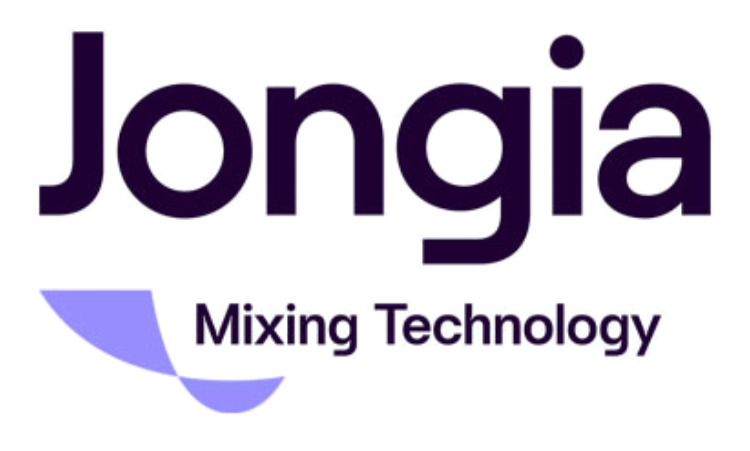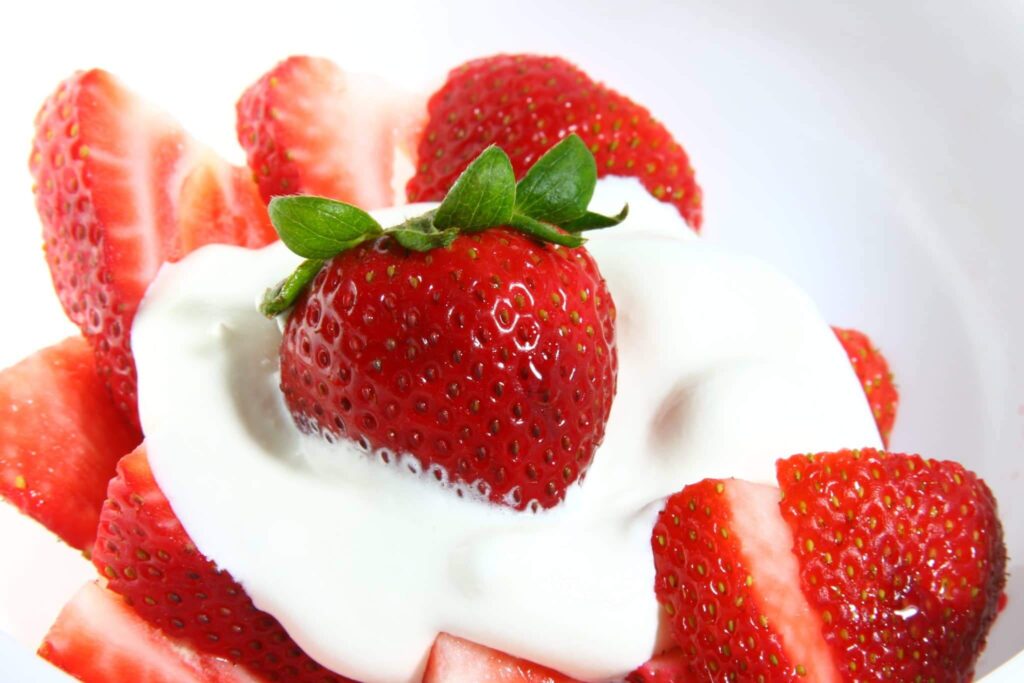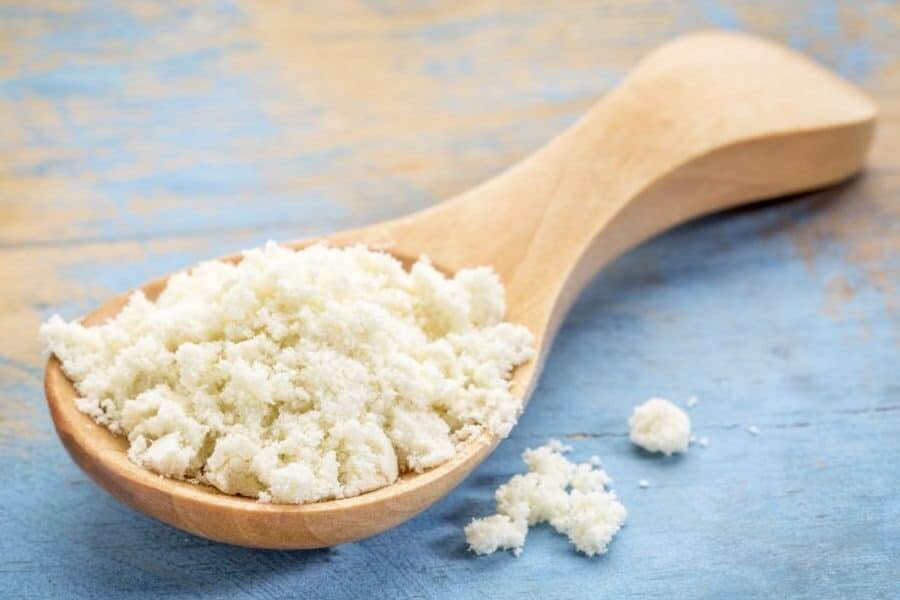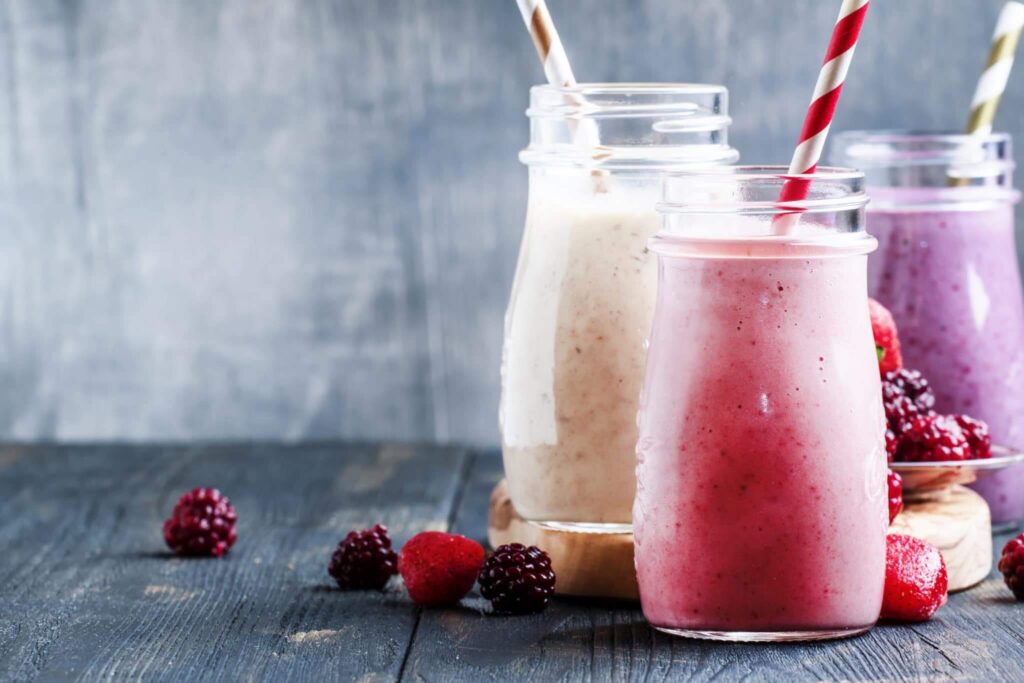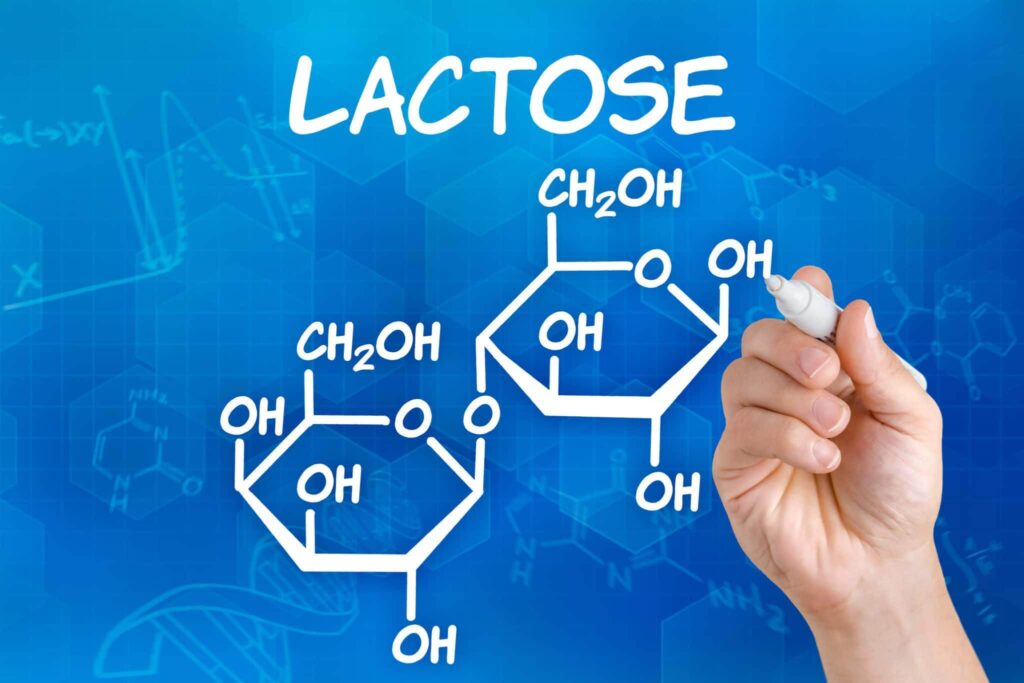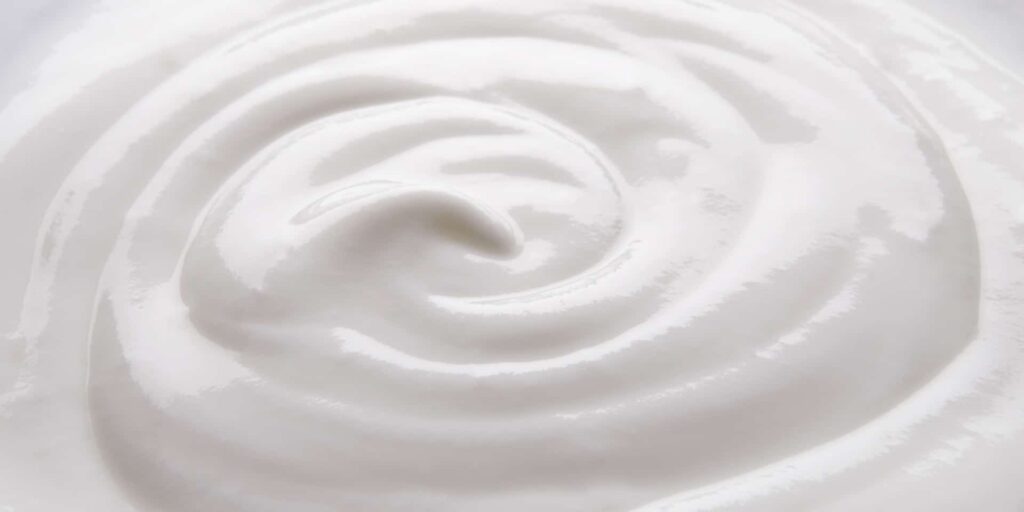
Yoghurt
Yoghurt is an acidic, often sweetened or flavored dairy product prepared by homogenization and fermentation of pasteurized milk. It is consumed in various forms, including beverages, snacks, meal replacements, desserts and protein-rich sports drinks. Health benefits of yogurt include healthy digestion, low risk of type 2 diabetes, protection against colon cancer, prevention and treatment of osteoporosis, enhancement of weight and fat loss, improvement of the immune system and reduction of high blood pressure.

For the best mixing solution we rely on our process knowledge of more than 80 years and our high quality sanitary design

Yoghurt types
There are many different types of yoghurt, we go over the most commonly sold yoghurt types with you.
- Greek yoghurt
Greek yoghurt often contains more fat and calories than regular yoghurt. It is a thick yoghurt with often a milder taste, this is partly because cream is added to Greek yoghurt. Greek yoghurt often contains 3x the number of calories as a serving of low-fat yoghurt. - Bulgarian yoghurt
Bulgarian yoghurt is often a bit softer in taste than regular full-fat yoghurt. The difference between Bulgarian and Greek yoghurt is that Bulgarian yoghurt contains milk powder and condensed milk. The yogurt is relatively high in saturated fats, thus Bulgarian yogurt is often fattier than full-fat yoghurt. - Skimmed yoghurt
Skim yoghurt (also called Dutch Yoghurt) contains barely any fat, semi-skimmed yoghurt usually contains about 1.5% fat and full-fat yogurt usually contains 3% fat. Furthermore, skimmed yoghurt is almost exactly the same as half-fat yoghurt and full-fat yoghurt.
Yoghurt market trends
The global yoghurt market was valued at $97,999.5 million in 2020 and is expected to reach $171,826.1 million by 2031, growing at a CAGR of 5.5% from 2022 to 2031.
The global yoghurt market is mainly driven by the health benefits that yogurt brings. Other factors supporting the market growth are the expansion of the retail market in different regions and the lower lactose content for lactose intolerant people who want to eat dairy products.
Some of the key producers spreading awareness and promoting yogurt consumption include Yakult, Danone, Nestlé and Chobani. However, artificial additives and ingredients added to yoghurt and harmful hormonal treatment of milk-producing cows keep people from consuming yogurt.
Frequently Asked Questions
What is yogurt?
Yogurt is an acidic, often sweetened or flavored dairy product made from the fermentation of pasteurized milk. It’s enjoyed in various forms, such as drinks, snacks, and dairy products. Health benefits include promoting digestion, lowering diabetes risks, and improving the immune system.
What are the different types of yogurt?
Common types of yogurt include Greek, Bulgarian, and skimmed yogurt. Greek yogurt is thicker and creamier, while Bulgarian yogurt has a softer taste and is higher in saturated fats. Skimmed yogurt has little fat and comes in various fat percentages like 1.5% or 3% fat options.
What are the health benefits of yogurt?
Yogurt offers numerous health benefits, such as aiding digestion, reducing the risk of type 2 diabetes, protecting against colon cancer, and helping in weight loss. It also improves immune function and may lower high blood pressure, making it a healthy addition to your diet.
What is the current trend in the yogurt market?
The global yogurt market was valued at approximately $98 billion in 2020 and is anticipated to reach around $172 billion by 2031, with a growth rate of 5.5% CAGR. Health benefits and low lactose content drive market growth, while awareness campaigns from leading brands support it.
Who are the key players in the yogurt industry?
Major yogurt producers include Yakult, Danone, Nestlé, and Chobani. These companies promote yogurt consumption through awareness campaigns. However, concerns about artificial additives and hormonal treatments in dairy production can deter some consumers from yogurt consumption.
Food & Beverages Contacts

Tom Pruymboom
Sales Director
Area Worldwide

Bart Brouwer
Area Sales Manager
Area Worldwide

Sijko van der Veen
Application Engineer
Technical Specialist
Dairy – Related Articles

The introduction of crystallization in the mixing process for the dairy industry
Jongia Mixing Technology has initiated numerous mixing processes all over the world using her agitators. In some of these mixing processes, crystallization was a key factor in acquiring the desired final product. The process of crystallization is well-known in the

The Jongia Magitator: A multi-purpose magnetic agitator
To keep dairy or starch products homogeneous, the Jongia Mixing Technology Magitator, a magnet-driven agitator, is the right choice. In addition, this agitator maintains vegetable oil or juices at the right temperature. USP’s of the Magitator Opting for the Magitator

Jongia propellers are a valuable addition to the mixing process
Product friendly propellers are an indispensable part of our customers’ mixing process. Especially in the dairy industry, where slightly viscous liquids are mixed, it is very important that the products are not damaged during the mixing process. Jongia has unique
